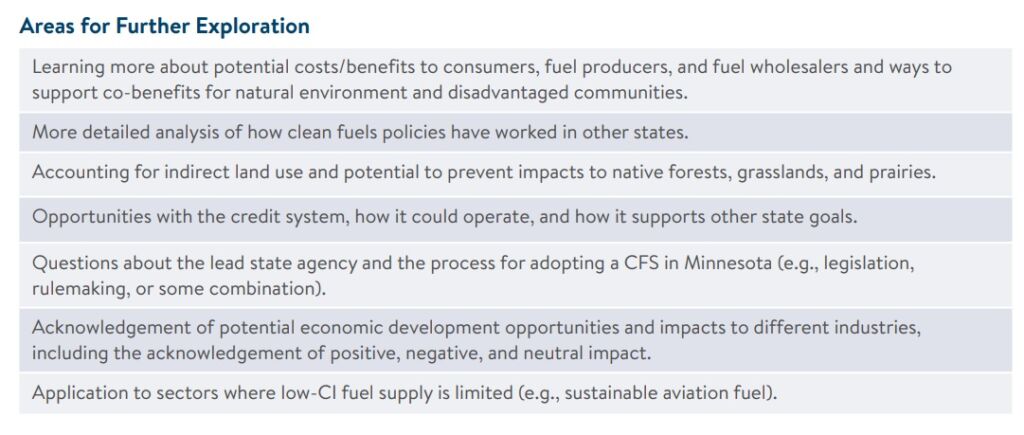Walz admin’s “Clean Fuel Standard” report leaves out obvious gas price increases
Did you know that the Walz administration’s 19-page report on the potential of adopting California’s “Clean Fuel Standard” (CFS) in Minnesota never once mentions that the program will increase the cost of gasoline by 20 cents per gallon in the near term and 54 cents per gallon by 2035?
It is difficult to believe that the administration does not know that this policy will increase the cost of gasoline, but that is essentially what was said in the report:

If I had to guess, I would say that the Walz administration likely understands that this policy will increase the cost of gasoline and diesel fuel, but did not want to put this fact in its report due to high gas prices. While this strategy may be savvy politics in an election year, it is an exceedingly cynical way to govern.
Any time a politician, regardless of party, proposes a new regulation on Minnesotans, the first question they should have to answer is, “how much will it cost?” The answer to this question will ultimately depend on which version of the California fuel standards are advanced in Minnesota.
If the CFS follows California’s regulations, then we can expect the cost of gas to increase the annual cost of driving by $210 to $568 per household per year. If the Minnesota House DFL version of the legislation is put forward, it will increase the annual cost of driving by an additional $380 to $710 per year in additional gasoline costs by 2030.
As we discuss in our report Gas Station Inflation, the CFS is all pain and no gain.
Unfortunately, the Walz administration’s policy priorities are deeply out of touch with the needs of Minnesota families and businesses, who are already struggling to keep up with the highest inflation in 40 years.
Sign our petition saying NO to gas station inflation by clicking here.